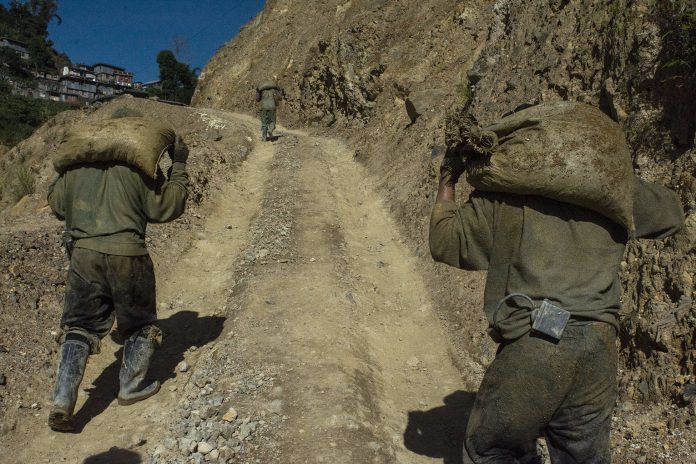An anti-mining group raised alarm over the “dangers of destructive mining” following reports that the government’s economic team has pushed for more mining projects as part of the post-pandemic recovery program of the next administration.
“The mining industry’s economic contribution does not outweigh the harmful impacts to mining-affected communities in particular and the cumulative impacts of climate change and natural disasters for the whole country, in general,” said Jaybee Garganera, national coordinator of the group Alyansa Tigil Mina (ATM).
He also questioned the claim of the Mining Industry Coordinating Council (MICC) that mining contributes “significantly” to the regional economy, saying the computations “fail to account for or externalize the costs to the environment, health, cultural displacement and conflict brought by mining.”
In an earlier pronouncement, the outgoing economic team of President Rodrigo Duterte pushed for the revival of the mining industry to generate more jobs and develop rural areas hosting mines.
“A simple input-output analysis done as part of the phase-one review showed that mining and quarrying contributed significantly to the regional gross domestic product (GDP) in regions where there are mining operations,” read a joint report released early this month by the National Economic and Development Authority, the Department of Environment and Natural Resources, the Department of Finance, and the Development Academy of the Philippines.
A technical paper was also released containing the findings of the interagency MICC review from 2018 to 2020 of large-scale metallic mines. The MICC review was started following a controversial order by the late former environment secretary Gina Lopez in 2017 to close down or suspend 23 mining operations, mostly over environmental concerns.
The report claimed that mining “brought employment, and the demand for labor helped increase the local population, which became the driver of the surge in economic activities.”
“An increase in services comes with rapid population growth, promoting business growth, including the backward and forward linkages of the mining operation,” it added.
The report also urged more inclusive mine development so that host-communities themselves benefit from mining activities.
According to the report, 17 of 27 mining operations covered by the MICC’s first review phase were under “care and maintenance” at that time due to “depressed global metal prices forcing mining companies to stop operation since the cost is higher relative to price” or because of “suspension by a regulatory agency for non-compliance with certain requirements.”
When mining firms were under care and maintenance, “company employees suffer loss of income or livelihood, and backward and forward linkages of the mining operation are stopped,” the report said.
ATM’s Garganera, however, said data from the Mines and Geosciences Bureau itself revealed the mining industry’s “insignificant contribution to the GDP.”
According to the MGB in June 2021, the mining sector accounted for PhP102.3 billion, equivalent to 0.6 percent of gross domestic product (GDP) growth in 2020. In addition, there were only 184,000 jobs created.
“We do not think that mining is the answer to the country’s economic woes,” he said. “Instead, a rational management of our natural resources is needed for the sake of future generations,” added Garganera.
He also called for a “full disclosure of all the mine audit reports and the reviews of these mine audits must be implemented as soon as possible.”
The environmental activist said alternatives to mining must be considered to revive the economy, such as agro-forestry, eco-tourism and watershed development, agriculture and fisheries, and community-based enterprises.









